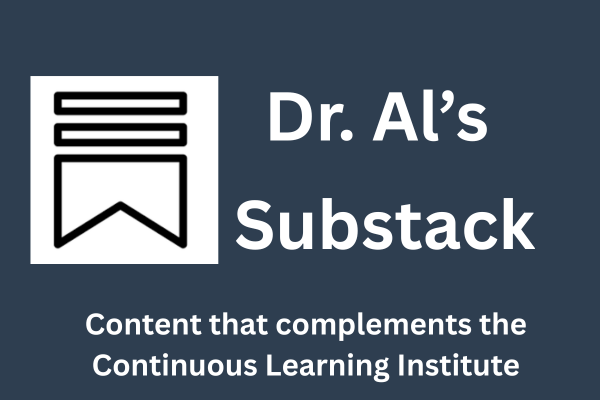Equitable STEM Transfer Pathways with Dr. Xueli Wang

LISTEN TO THE EPISODE:
Learn about the challenges and opportunities of improving equitable outcomes for STEM transfer students.
In this episode, I interview Dr. Xueli Wang, Professor of Higher Education, University of Wisconsin-Madison.
(Scroll down to access the transcript.)
We discuss the following topics:
6:42:25: The "Why": Impetus for writing the book, On My Own: The Challenge and Promise of Building Equitable STEM Transfer Pathways
11:34:00: The research process and general themes: No clear STEM pathways and uncovering structural barriers to transfer student success.
15:38:50: Unpacking structural barriers that impede transfer student success in STEM.
23:54:50: Barriers that faculty create for students.
35:13:82: The challenge and opportunities of continuously improving teaching practices, and book recommendations.
49:04:00: Barre as a metaphor for institutional change.
- What is barre?
Resources:
- Practice guide for faculty in supporting transfer students, published by the National Institute for the Study of Transfer Students: Supporting Transfer Student Success: Five Key Faculty Practices
- A two-page summary in support of the above guide: Main Barriers Transfer (-intending) Students Experience & Overcome
- University of Illinois, Office of Community College Research and Leadership (OCCRL)
- USC CUE
- The Implementation Challenge: Three-Month Rule
- Example of Quality Faculty Collaboration that Improves Instruction with Equity Intentionality (skip to 4:40)
Select Dr. Wang quotes:
"I conducted this research wanting to find STEM transfer pathways, and I found none. The current system, as it is, is a very convoluted process where students persisted through so many structural barriers because of their own agency, brilliance, and resilience."
"The system serves as a mechanism that perpetuates preexisting inequities, meaning mostly, students ending up transferring upward are more likely to come from relatively more advantaged social, cultural, and economic backgrounds. Whereas, students from low income families and students who are first generation of color are more likely to follow less linear pathways or in some cases, they ended up not transferring or having left post-secondary education altogether."
"The first barrier, it is a very pervasive issue in higher ed, but particularly for this group of students: the utter lack of financial support across almost all levels of financial aid policy making. There are some transfer support scholarships. I'm not denying that. But just in terms of the general financial aid policy making, transfer students are not part of the picture. What this transpires in terms of student experiences is that sometimes a student might have a perfect GPA and everything, for them to transfer, but then they are facing the realities of not having enough financial resources to move on with their baccalaureate. Students are forced to make decisions between school and work. Oftentimes these are students from low income, first generation backgrounds, and women of color, who are deeply committed to supporting their family members."
"The second barrier is course articulation. Students who did end up transferring, they experienced having excessive amount of credits that don't count for their baccalaureate. There's a lot of articulation on paper, but not when students need the credits for the major."
"Another structural barrier is the lack of accessibility and transferable course options. For example, transferable chemistry courses that are offered only once a year."
"Faculty colleagues, myself included, unintentionally create barriers for students. I think a lot of the problems faculty colleagues unintentionally caused were actually rooted in a very simplistic take on what success means, who succeeds, and/or what that looks like."
"Faculty need to acknowledge there's a lot of unlearning, co-learning, and re-learning to do together, and that language is flawed, and practices can be improved."
About Dr. Xueli Wang
Dr. Xueli Wang (pronounced similar to “Shoo-lee Wong”) is the Barbara and Glenn Thompson Endowed Professor in Educational Leadership and a professor of higher education at the University of Wisconsin-Madison. She teaches graduate courses on community colleges, mixed methods research in education, and assessment in higher education. Dr. Wang’s research focuses on community colleges and STEM education, aiming to identify practices, structures, and policies toward transformative change for equitable student outcomes. In collaboration with a number of community and technical colleges, Dr. Wang’s NSF-funded research projects have investigated two-year college students’ learning, transfer pathways, and success, how faculty development translates into teaching practices that subsequently shape students’ experiences and outcomes, as well as how technical and community colleges engage in change and innovation during times of crisis.
A notable example of Dr. Wang’s work is her book, “On My Own: The Challenge and Promise of Building Equitable STEM Transfer Pathways” (published in 2020 by Harvard Education Press). Grounded in a large-scale longitudinal mixed methods study of 1,670 community college students, the book unravels enduring inequities in transfer, particularly in STEM fields of study, and issues a plan of action toward cultivating equitable transfer pathways. This book received the 2021 Publication of the Year award from the American Educational Research Association’s Postsecondary Education Division. Among her numerous other awards, Dr. Wang was honored with the Transfer Champion-Catalyst Award by the National Institute for the Study of Transfer Students in 2021, the Barbara Townsend Lecture Award by the Association for the Study of Higher Education in 2020, and the University of Wisconsin-Madison School of Education’s Faculty Distinguished Achievement Award in 2020.
About Dr. Al Solano
Al is Founder & Coach at the Continuous Learning Institute. A big believer in kindness, he helps institutions of higher education to plan and implement homegrown practices that get results for students by coaching them through a process based on what he calls the "Three Cs": Clarity, Coherence, Consensus. In addition, his bite-sized, practitioner-based articles on student success strategies, institutional planning & implementation, and educational leadership are implemented at institutions across the country. He has worked directly with over 50 colleges and universities and has trained well over 5,000 educators. He has coached colleges for over a decade, worked at two community colleges, and began his education career in K12. He earned a doctorate in education from UCLA, and is a proud community college student who transferred to Cornell University.







